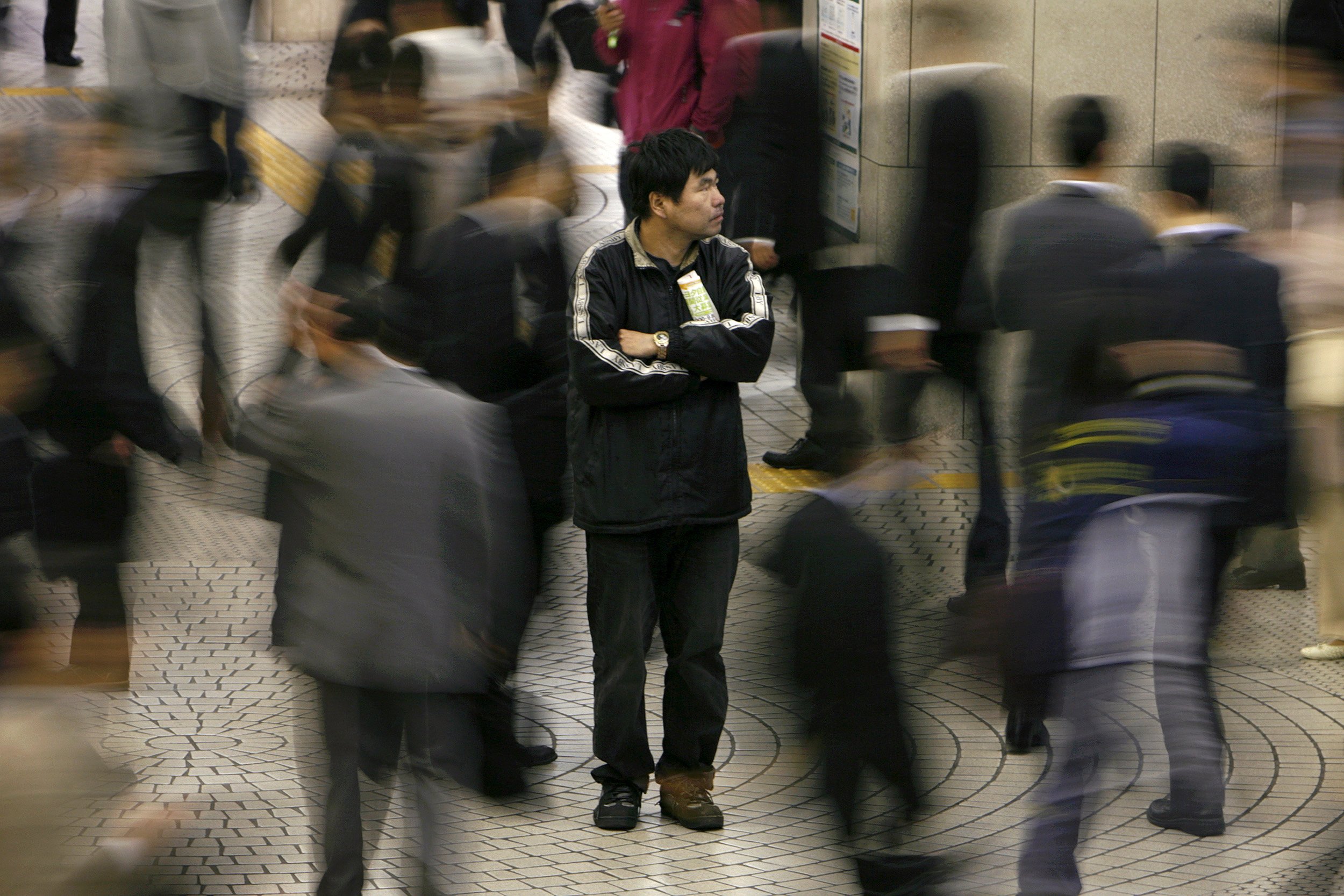
Japan's suicide rate is falling after years of preventative measures, but there's still much to do, says the Japanese government.
Compiled by the Japanese cabinet office, the report found that the number of people who took their own lives fell to 21,897 in 2016, the lowest level in 22 years. For much of the 2000s the rate hovered above 30,000 each year.
The report was the 11th consecutive paper released by the government, and showed that despite the positive drop, Japan still has one of the highest suicide rates among industrialized nations. On average, 19.5 people kill themselves per 100,000 in Japan, compared to 11.3 in Canada, or 7.5 in Britain. Topping the list however is Lithuania, where 30 people out of 100,000 take their own lives each year.
According to Japan's health ministry, more women than men consider suicide in Japan, nearly one in four consider killing themselves. The survey, discussed in a March Newsweek article, looked at the number of people contemplating suicide rather than the actual going through with it.
That Japan's suicide rate is dropping suggests preventative measures put in place by the government are working, the report argues. The worst period for suicides in Japan was in the late 1990s, but the latest results show a slow dip.
The health ministry also found that only 6.9 percent of respondents were aware of nationwide suicide prevention, and, in response, the government promised to promote services more visibly reported by The Japan Times. Japan has channeled a lot of effort into making suicide less taboo, hiring advertising giant Ogilvy to devise a campaign. In 2005, Lifelink, a non-governmental organization, worked with the government to launch the first forum to open the discussion, and since, rates among the middle-aged and elderly have fallen, according to the World Health Organization. However, rates among young people are still high.
"We are behind in suicide prevention activities for the younger generation. We need to strengthen support for youth by improving their educational and working environments," said Dr Takeshima, Director of Japan's Centre for Suicide Prevention at the National Institute of Mental Health.
The government report, released Tuesday, found that of the 3,000 people surveyed aged 20 and over, nearly 50 per cent admit they would struggle to seek help from others if they were stressed out.
Uncommon Knowledge
Newsweek is committed to challenging conventional wisdom and finding connections in the search for common ground.
Newsweek is committed to challenging conventional wisdom and finding connections in the search for common ground.
About the writer
To read how Newsweek uses AI as a newsroom tool, Click here.








